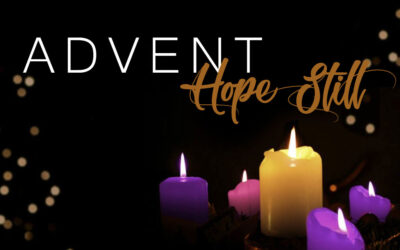Vol. 8-28 – 07-09-2023 – Leaky Bags and Wallets; What’s Better
Do Your Bags and Wallets Leak?
Now, therefore, thus says the Lord of hosts: Consider your ways. You have sown much and harvested little. You eat, but you never have enough; you drink, but you never have your fill. You clothe yourselves, but no one is warm. And he who earns wages does so to put them into a bag with holes. –Haggai 1:5-6
Do you ever wonder why the money flows out faster than it comes in? And, when you can get an extra amount, you are not very good stewards at managing those funds either. The washer fails, the car goes on the blink, you need a plumber, and the lawn mower quits.
I know what we do. We grab a box of Kleenex and whine. It seems like the verse is asking if we want cheese with that whine.
Financial struggles are most often outcomes of poor stewardship. Some take action: to get cards from the government and buy the food they do not need. Get more free food from food banks. Get aid for their utility bills. Their medical bills. Their rent. Free phones. Free medical care. Etc. Never learning how to be good stewards of their spending.
People with higher incomes struggle as well. Their food spending is caught in high-end restaurants. The specialty shops of designer clothing and shoes. The BMW. The boat. The house—five bedrooms and five baths minimum. Never lift a hand to mow their lawn.
This is not speaking about a season of life. It is a pervasive battle. Or is it? Why are people living paycheck-to-paycheck? Because spending is a habit. Do you know about habits? We don’t have habits; habits have us! Our bags and wallets have holes. We put the holes there. With the habits that have us.
You think that this problem is more recent. Because of inflation. Government mismanagement. Habits have them as well.
Sadly, not much comes from pulpits from the book of Haggai. Poor stewardship was prominent on that day as well. Did you get the picture? There was too much month left at the end of their money. Wow. Same as today. Read the two verses again; Haggai 1:5-6.
A bag with holes in it. What a picture. As I have counseled people on their spending, their first response is predictable. I told a young man that maxed out six credit cards he needed to get a part-time job and begin to pay all of that income on the principal of his debt. I asked him what the total of his debt was. He did not know. At least that is what he said. He knew. I asked him what he did with the bills—he did not open them. He was hoping they would go away. When I suggested a part-time job to pay down debt, he responded that he needed time for himself.
I asked him if he was managing that time well presently.
Read on in Haggai. You looked for much, and behold, it came to little, and when you brought it home, I blew it away. Why? Declares the Lord of hosts. Because of My house that lies in ruins, while each of you busies himself with his own house. –1:9
When I asked the young man if he supported the church ministry, he responded that he would consider that when he paid off his debts. Indicating it was not on his mind. He said that the rich ought to support the church.
What was on his mind? His new audio system. His cable and internet. His new iPhone. His late model sports car. His condo.
Does it Get Better?
And I will be to her a wall of fire all around, declares the Lord, and I will be the glory in her midst. –Zechariah 2:5
When people reject what God says there is a price to pay. Here in Zechariah, the people were practicing (another word meaning their walk of life) abominations toward Almighty God. God allows the enemies of Judah to capture the city, the place of their worship. Hi, we are from the government, and we are here to help. ???
How would you feel if you lived back then? To see your city, burn? What if pagan looters burned your church? Homes. Businesses. Abused the people in your cities. Pushed in to occupy your cities. Lived in your homes. They do and continue to do so. With government approval. With blind eyes of corrupt District Attorneys.
The Judeans had a history of recurring nightmares. They would not learn their lessons. During this time, God had allowed them to be taken into exile. The Judeans could not believe this was happening to them. Despite God’s consistent warnings, they turned their back on Him and did things their own way (there is a song about that). Worshiped anything they chose—mostly themselves.
God had given His people covenants to abide by (similar to constitutions). People began to choose which parts of the covenants they would abide by. The covenants included the penalty, punishment, and judgments for not abiding by the stipulations. Some included the penalty of death.
God could not abandon His promise to judge. His heart is heavy as He punishes His people. Love includes holding people to righteousness. Then God pleas with His people to return to Him, promising to return to them (Zachariah 1:3, 16; 2:4).
He promises His Temple will be rebuilt and that the city will be without walls (but that He will be the wall). A city with God’s house, with a wall of fire around it. God is the fire.
Life Application
Haggai provides reality for biblical stewardship (management of the whole life):
Do not fret.
Give God a portion of your time, talent, and resources.
Trust God to provide your needs.
The Judeans had it backward. Too many of us have it backward as well. It looks like this:
Fret.
Stop giving your money and resources to God.
Do whatever it takes to maintain your lifestyle.
God meets our needs, often in awe-inspiring ways when we commit to honoring Him first. God asks us to be honest with Him. Does our stewardship come closer to Haggai 1:5-6 or to Matthew 6:33?
Zechariah writes it is better when they return to Him. Is it not better; to return and be restored to fellowship with Him?
One of the great blessings we have in God is to be grafted into His family. Today we have His promise that God will be with us; God is in His children. Ponder the implications of the two passages together, the implications of God living within us. What difference will that make to our life? Our faith. Our stewardship. Our testimony. Our love for others?
Ask God to help you seek His kingdom first as you spend your time, talent, and resources.
Then walk in the confidence of truths from Haggai and Zechariah.



